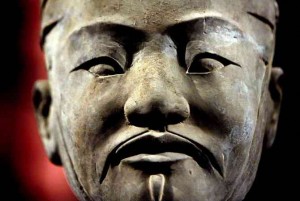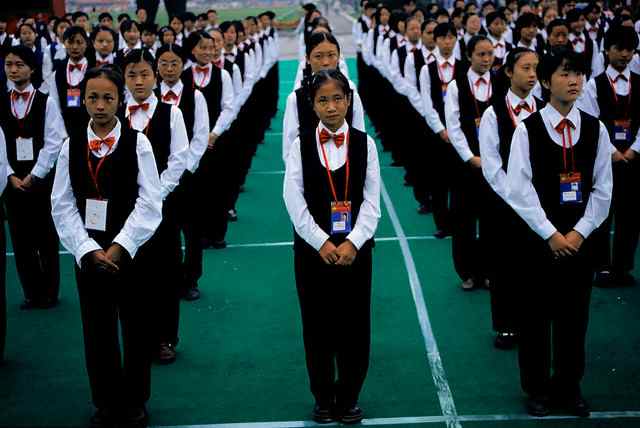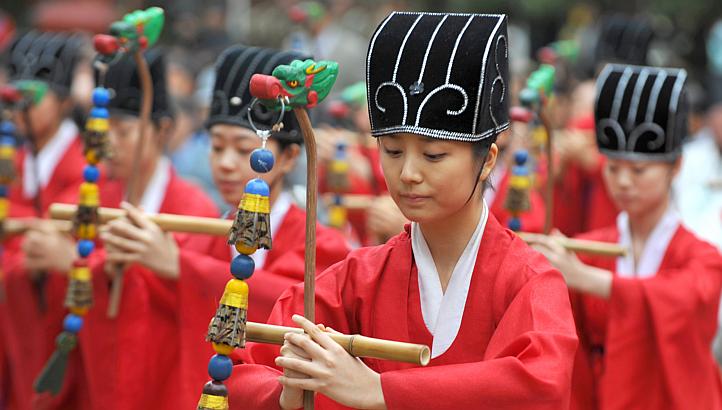
Try looking at the world through a pair of Korean glasses Part 3
This is Part 3 of a blog which outlines the areas where Eastern and Western culture clash that can cause friction at work or even in our place of study in South Korea; I mentioned before the tension that exists between the two cultures of Individualism = Western and Collectivism = Korea, which can cause tension to arise in our work or wherever we find Korean people and team-work; the good thing about Korean culture is if there is a job to e done, people we naturally rally around and lend a hand – this is all part of the family culture also, I mentioned that there is a tension for us Ex-pats between east and west notions of work; eastern work-ethic is usually work hard but for us Westerners someone can work hard just by beating the air aimlessly; there is another tension which can shed more light on that tension between the collective team at work an your individual rights:
you may have noticed that the Korean culture here is seeped in Confucianism; you don’t have to look far in Korea to find Confucian scholars: you can find Yi Hwang, and Yi I, the two most prominent scholars of the 16th Century on the back of the 1,000 and 5,000 won note.; while traces of the philosophy can be found in the earliest records of the Korean Peninsula, its influence grew considerably from the 14th century onward during the Joseon Dynasty. By the 1500s, Neo-Confucianism had come to dominate thought in the kingdom, largely due to the influence of these two Korean philosophers; but the roots of Confucianism, of course, came from the Chinese philosopher by the name of Confucius who is quite famous for his practical quotes like,
“Choose a job you love, and you will never have to work a day in your life.”
To Confucius, the Golden Rule: “Do not do to others what you would not like done to yourself”; which is sometimes called the silver rule when compared with the golden rule of do to others as you would have them do to you” as taught by Jesus Christ.
At the turn of the last century Confucianism ruled Korean society where every citizen was locked into a hierarchical structure where the King was at the top followed by his advisers or ministers, followed by the teacher; where any hope of breaking out of that hierarchy meant grueling hours of study of the National Civil Servant Exam; maybe this sheds light on why Korean society is so obsessed with study who think that the only key to breaking out of their frustrating economic situation is study. Actually, it is interesting to note that if you opened the book called ” which is a collection of Confucius writings the very first Chinese character in the book is the character “Study”Korea was under agriculture just like in England when Britain was still an agricultural society; it is astonishing to think that only 70 years ago Korea was still a predominantly agricultural society society was run by feudalism which also had its own brand of hierarchy.
He believed that moral behavior stemmed from the fulfillment of traditional roles, as defined by these “five principle relationships” (with trust between friends as the only horizontal relationship):
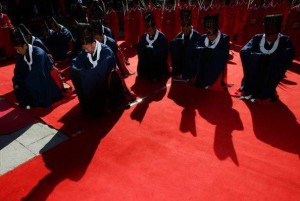 Ruler and minister
Ruler and minister
Father and son
Elder brother and younger brother
Husband and wife
Friend and friend
In one sense, the Confucian ethic is egalitarian, though not in Western sense where everyone has equal standing and opportunity within society. Instead, there’s equality within a social rank.
Its roots are in China.
Though modern China has moved past these narrowly defined roles, the Chinese today are still used to thinking in terms of hierarchy. They tend to respect hierarchy and differences in status much more than Westerners, who tend to be more egalitarian and open towards strangers. Americans in particular, tend to value people who treat everyone with equal respect, regardless of their relative socio-economic statuses. For instance, you often hear stories of the “down to earth” big shot CEO who chats with the janitor every morning on a first-name basis. You won’t see this in China.
Many American managers–preferring informal, egalitarian relationships–try to get their subordinates to call them by their first names. However, if the age and status gap is wide, most will be uncomfortable doing so (you’ll have better luck with something like “Mr. Mike”).
The point is that they very much respect the chain of command. If, for example, you’re traveling in China as part of a youth program and you have a legitimate gripe about being treated unfairly, your best bet is to appeal to the highest person up the chain as possible. Incidentally, this is sort of the opposite advice I was given in Southeast Asia about bribing the police if I got into trouble: Pay your bribe as early as possible, otherwise it gets more expensive as more higher-ups get involved.
The “inscrutable” Chinese?
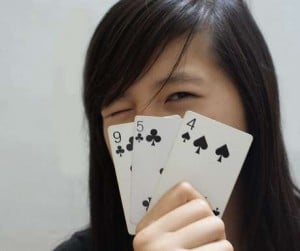 This respect for authority and hierarchy helps explain why Westerners have long complained that the Chinese are “inscrutable” (or worse, devious). In contrast to Western cultures—which encourage individual expression—Chinese culture encourages more of a “poker face”.
This respect for authority and hierarchy helps explain why Westerners have long complained that the Chinese are “inscrutable” (or worse, devious). In contrast to Western cultures—which encourage individual expression—Chinese culture encourages more of a “poker face”.
In other words, in a Confucian society, you’re supposed to act according to your rank… and not necessarily by how you feel. In the interest of social harmony, it was important to behave with reverence and obedience according to your rank. Indeed, it was not just the polite thing to do in traditional Chinese society. Saying the wrong thing to the emperor or a powerful official could literally cost you your life.
Even in modern China today, this cultural tendency to retain a more neutral public face still endures—especially in work situations when dealing with those in authority (including customers).
So whether dealing with your tour guide or hotel manager, don’t simply assume that they’re being evasive or uncaring just because they don’t seem to be mirroring your concerned expression when things go wrong.
On the other hand, that blank look on their face may also mean, “What the hell is this big nosed Whitey talking about? I wonder what’s for lunch in the cafeteria today?”
COLLECTIVISM & GROUP ORIENTATION
“No matter how big, one beam cannot support a house.” –Chinese proverb
One of the dimensions that sociologists use to contrast cultures is the degree of “individualism” versus “collectivism”.
It’s probably obvious, but Western cultures tend to emphasize the individual —people are defined more by what they’ve accomplished than by group membership. Individual expression is encouraged from an early age and culturally reinforced in Western cultures.
In contrast, collectivism is inherent in a Confucian society. In order for Chinese society to operate smoothly, it was necessary to subject one’s own desires to the greater good of the group. In other words, people didn’t exist independently of one another. Instead, an individual was defined by his or her relationship to the group.
For millennia, the Chinese have been culturally conditioned to suppress own personal needs and think in terms of collective responsibility—first, to their families, then community, clan, and nation at large.
Modern Chinese society is rapidly changing however. For better or worse, Chinese culture is being “Westernized,” along with many cultures around the world (with American popular culture as a leading culprit). Deng Xiaoping’s statement that “To be rich is glorious” perhaps best symbolizes this transition away from traditional collectivism and towards a more looking-out-for-number-one mindset.
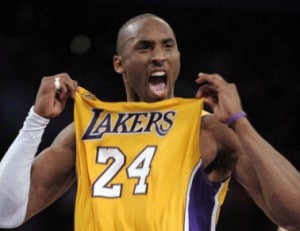 But cultural values are remarkably persistent. For instance, Asian cultures—despite Westernization—still have a strong value around modesty and humility. Overt displays of individualism and bragging are still extremely repelling to the Chinese (foreigners get more leeway since they expect it more).
But cultural values are remarkably persistent. For instance, Asian cultures—despite Westernization—still have a strong value around modesty and humility. Overt displays of individualism and bragging are still extremely repelling to the Chinese (foreigners get more leeway since they expect it more).
They may love NBA basketball (and yes, Kobe), but you won’t see their players thumping their own chests. Just look at the humility of Yao Ming compared to his American counterparts, despite his All-star status.
“Where? Where?”
An example of this Chinese modesty is how they take a compliment. The Chinese are effusive compliment givers. This help explains why you find so many of them complimenting you on your “excellent” Chinese….despite the fact that you’re butchering the three phrases that you’ve managed to pick up (hello, thank you and good bye).
But when receiving a compliment, they generally don’t say “thank you.” Instead, they usually dismiss it by saying “Nali, nali” –translating literally as “Where? Where?” (as in “Where? Where is this supposed excellent Chinese to which you refer? Nowhere, that’s where!”).
This focus on family became added motivation for “proper behavior” and conduct. An individual’s success—and shame—belongs to the whole family. Because of this Confucian idea of group identity and shared “face,” Chinese families—compared to Western ones—are stereotypically overbearing (or “all up in each others’ business” as the kids say).
I’m not just talking about mothers and fathers, who feel like they need to be involved in every aspect of their kids lives (typically until they get married and have kids). Grandparents and any other older relatives are not shy about giving their two cents. There’s no subtlety and everything is fair game; they relish in criticizing everything from less-than-stellar grades to your personal appearance to lack of marital status. Their criticisms and nosy questions are supposed to be meant as showing concern…but from the Western point of view, they come off as terribly annoying (can you tell I’m speaking from personal experience?).
Another side effect of this “family first” approach is that the Chinese tend to view society in terms of insiders and outsiders. This is related to the idea of guanxi (“connections”)—where Chinese people view the world in terms of their web of family, personal and professional network….and everyone else (I discuss these concepts in more detail in the next articles).
IMPORTANCE OF SCHOLARSHIP
“If you do not study hard when you are young, you’ll end up bewailing your failures as you grow up.” —Chinese proverb
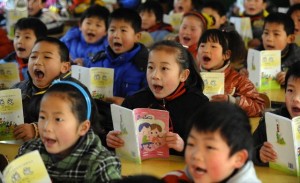 Another big Confucian influence on Chinese society is the focus on education and scholarship. It’s no secret that Chinese (and other Asian) students put in more hours in classroom study that their Western counterparts. Without getting into the pros and cons (rote memorization, lack of creativity, etc), I want to give a bit of insight into the roots of this classroom diligence.
Another big Confucian influence on Chinese society is the focus on education and scholarship. It’s no secret that Chinese (and other Asian) students put in more hours in classroom study that their Western counterparts. Without getting into the pros and cons (rote memorization, lack of creativity, etc), I want to give a bit of insight into the roots of this classroom diligence.
Confucius placed a heavy emphasis on scholarship. This aspect of Confucianism is still very much in practice in China, as well as other deeply influenced countries such as South Korea, Japan, Taiwan and Singapore.
Confucianism directly gave rise to the Imperial Examination system around 605 — in essence, giving rise to world’s first modern civil service. Though it continued be refined and tweaked by future dynasties, the exam system was significant in that it was the only method by which a person (specifically, males) could move up in the world.
Confucius wanted to replace hereditary rule by the aristocracy with one based on scholarship and learning (a meritocracy). The series of exams were notoriously grueling—with a heavy emphasis on memorization of Confucian writing and classic works of literature. But if you studied hard enough and passed, you could earn yourself a spot as a government official, bringing your family considerable wealth and face.
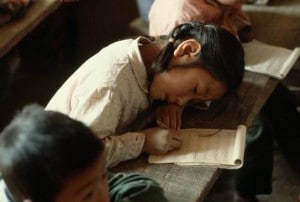 But like everything in China, you could work around the system with the right guanxi. Throughout China’s history—as today—the rich and powerful could find ways to get in through the back door. For instance, today, it’s commonly accepted that connected parents can get their kids into the most prestigious universities regardless of their grades (I suppose it’s true to some extent in the US as well).
But like everything in China, you could work around the system with the right guanxi. Throughout China’s history—as today—the rich and powerful could find ways to get in through the back door. For instance, today, it’s commonly accepted that connected parents can get their kids into the most prestigious universities regardless of their grades (I suppose it’s true to some extent in the US as well).
With limited number of spots at the top universities—and over a billion people—you can imagine how insane the competition is. I would NOT want to be a student in China.
There is a similarity between the Indian caste system and the Korean hierarchical system stemming from Neo-Confucianism:
At the heart of Confucianism is the notion of respect for elders; Confucius himself taught that the most important virtue was respecting our parents and the importance of the family and ancestors. His system of thought is more like a form of humanism except for the ancestral worship which is a form of religion; if you have lived in Korea during the two holiday celebration, which are Chosoek (Korean thanksgiving) and the Lunar New Year, you may have noticed that Korean families and extended families come together to bow to their ancestors.
One of the traits of Confucianism is its deference toward superiors, a Confucian trait deeply embedded in Korean culture; the embedded attitude of what is called “deferment” to superiors by juniors has even been attributed as a major factor in national disasters; there was the case of Korean Air; Actually here in the Peninsula Korea has its own brand called neo-Confucianism. In his book, “The Koreans” Michael Breen” writes about one infamous incident involving Korea’s National carrier, Korean Airways, he blames the accident on Korean’s strong ingrained habit of not
there is another area of culture which is so different between the West and the East and that is the notion of deferment or respect for authority and included in this is deferment which mean obeying your superiors absolutely;
Confucianism was constructed for an agricultural based society and economy: note the low rank given to businessmen at the bottom of the ladder ― how that has changed. The world of today is not that agriculturally based, it is a globalized society where people are very mobile and the majority of workers make money differently.”
Confucianism emphasizes harmony and the importance of family, as stated in his writings,“the family is indispensable for human survival and flourishing.”
This is one of the reasons why in Korea children are expected to regularly give financial gifts to parents when they gain the independence to work; in practice, Korean children are far more emotionally tied to their parents than in the American culture where in the U.S. there have been cases where children actually sued their parents or one of their parents, which could never happen in Korean society – at least not in our lifetime; also the idea of giving financial contribution can attributed to Confucius or neo-Confucianism.
Confucius emphasized the need to find balance between formal study and intuitive self-reflection (Analects 2.15). When teaching he is never cited in the Analects as lecturing at length about any subject, but instead challenges his students to discover the truth through asking direct questions, citing passages from the classics, and using analogies (Analects 7.8).[20] He sometimes required his students to demonstrate their understanding of subjects by making intuitive conceptual leaps before accepting their understanding and discussing those subjects at greater levels of depth. (Analects 3.8)[21]

